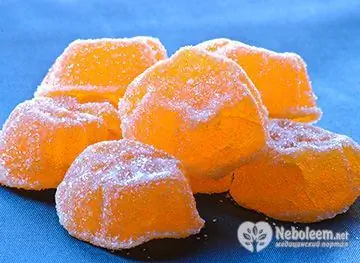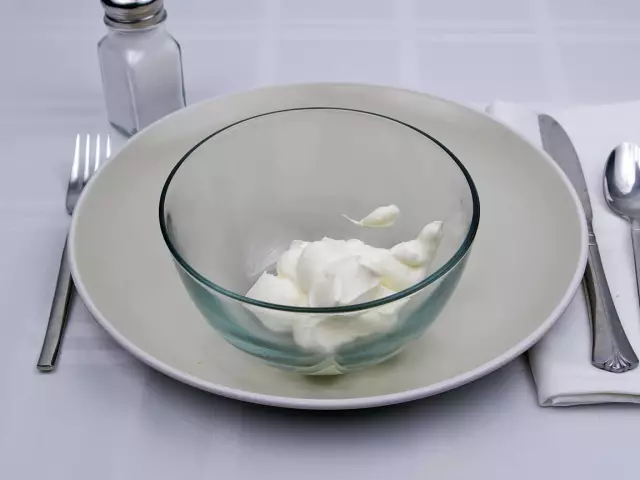- Author Rachel Wainwright [email protected].
- Public 2023-12-15 07:39.
- Last modified 2025-11-02 20:14.
Bamboo
Description of bamboo
Bamboo is a viable evergreen tropical plant from the Cereal family, which is believed to be native to East Asia.

The bamboo has a knobby, golden-straw stem with numerous leaves at the top. As a rule, it reaches a height of 25 to 40 meters and is the tallest grass of all members of this family (wheat, corn and rye). At the same time, bamboo has a very high growth rate and some of its species grow from 40 to 100 cm per day.
Within three years, the young trunk becomes stiff. Bamboo trunks are widely used for construction and as a finishing material, musical instruments are made from it and used for paper production.
Bamboo is distinguished by amazing properties - it is not afraid of moisture, sun or temperature changes. In the East, it is considered a symbol of indomitable strength and energy, since its sprouts can easily pierce even a stone. Buddhists regard it as a sacred plant that embodies longevity, spiritual truth, constancy, grace, long-term friendship and flourishing old age.
Bamboo composition
Bamboo contains 90% water. It is rich in protein - an average of 1.49 to 4.04 g per 100 g of fresh shoots. In addition, it contains eight essential essential amino acids.
100 g of bamboo shoots contains:
- 90.86 g of water;
- 2.65 g protein;
- 0.49 g fat;
- 0.58 g fiber;
- 0.88 g of ash.
Bamboo has a rich vitamin composition. Its shoots contain vitamins A, B6, E, thiamine, niacin, riboflavin, folic and pantothenic acids. They are also rich in minerals, including calcium, phosphorus, magnesium, potassium, manganese, sodium, zinc, copper, selenium and iron.
The calorie content of bamboo is 20 kcal per 100 g of shoots.
Useful properties of bamboo
Young bamboo shoots are not only delicious but also rich in nutrients. They are among the top 5 healthiest foods in the world.
The main properties of bamboo were recorded in an ancient pharmaceutical text from the Ming Dynasty (1368-1644): "It is cool, sweet, non-toxic, quenches thirst, improves blood circulation, adds Chi and can be used daily."
In Asian countries, the anti-inflammatory and restorative properties of bamboo, due to the presence of a strong antiseptic in its fibers, are often used for colds and SARS, as well as for allergies and asthma.
Bamboo is also one of the few plants with a high amount of silicic acid, which:
- Helps strengthen hair and nails;
- Has a beneficial effect on the skin;
- Has a calming effect in depressive conditions.
Bamboo is effective for peptic ulcers, digestive disorders and diarrhea. In Asian countries, it is also used to treat diseases such as jaundice, tuberculosis, fever, and dysentery.
Bamboo extract strengthens the walls of blood vessels, improves blood supply to tissues, reduces capillary permeability and increases their elasticity and tone.
For medicinal purposes, not only bamboo shoots are used, but also other parts of this amazing plant:
- Bamboo roots are used as a tonic;
- Bamboo leaves, which have antipyretic and expectorant properties, are considered a good cough medicine;
- Bamboo juice is used as a remedy for apoplexy and epilepsy.
Health Benefits of Bamboo Shoots
Bamboo shoots are more of an exotic food, since they are most widely used in Asian countries. However, the beneficial properties of bamboo are gradually finding their fans in Western countries.
Bamboo promotes gradual weight loss. Due to its balanced nutritional supply, it is considered an ideal food for those looking to lose weight without constantly feeling hungry. Dietary fiber, which is found in large quantities in bamboo, is essential for digestion and improving intestinal motility. In order to lose weight faster, it is recommended to eat young shoots for dinner. The low calorie content of bamboo and the low carbohydrate content allow it to be used in various plant-based diets.
The vitamins, minerals and antioxidants in bamboo shoots help to strengthen the immune system.
According to many studies in India and Asian countries, bamboo has been proven to be beneficial in preventing heart disease as it helps dissolve cholesterol. Due to its low fat content and low calorie content, bamboo also has beneficial effects on intestinal function.
Many studies have confirmed the anti-inflammatory and analgesic properties of bamboo, which allows it to be used externally in the treatment of wounds and ulcers.
Application of bamboo
A decoction of bamboo shoots is used in Asian countries for the treatment of respiratory diseases. As a rule, to obtain a decoction, the shoots should be boiled twice, first 5, then 10 minutes. The resulting broth can be taken with honey.
Traditional Chinese medicine believes that bamboo shoots have a rather rare property - to have a stimulating effect on the muscles of the uterus. Also, bamboo leaves are used for indigestion and as an anthelmintic.
Bamboo shoots are used in cooking to make various dishes. They are usually pre-cooked and then eaten with butter and soy sauce. They can also be added to soups, sauces, pickles and salads.

Fresh bamboo shoots last up to two weeks in a cool place and away from sunlight. Improper storage can result in a bitter taste. In order to preserve the beneficial properties of bamboo longer, it is usually canned.
In Japan, they also eat bamboo seeds, which vaguely resemble oats.
Contraindications and harm to bamboo
No contraindications to the use of bamboo for food have been recorded. However, when preparing dishes with bamboo shoots, it should be borne in mind that young shoots contain a poisonous cyanogenic glycoside, which, however, is quickly destroyed during cooking.
YouTube video related to the article:
Found a mistake in the text? Select it and press Ctrl + Enter.






